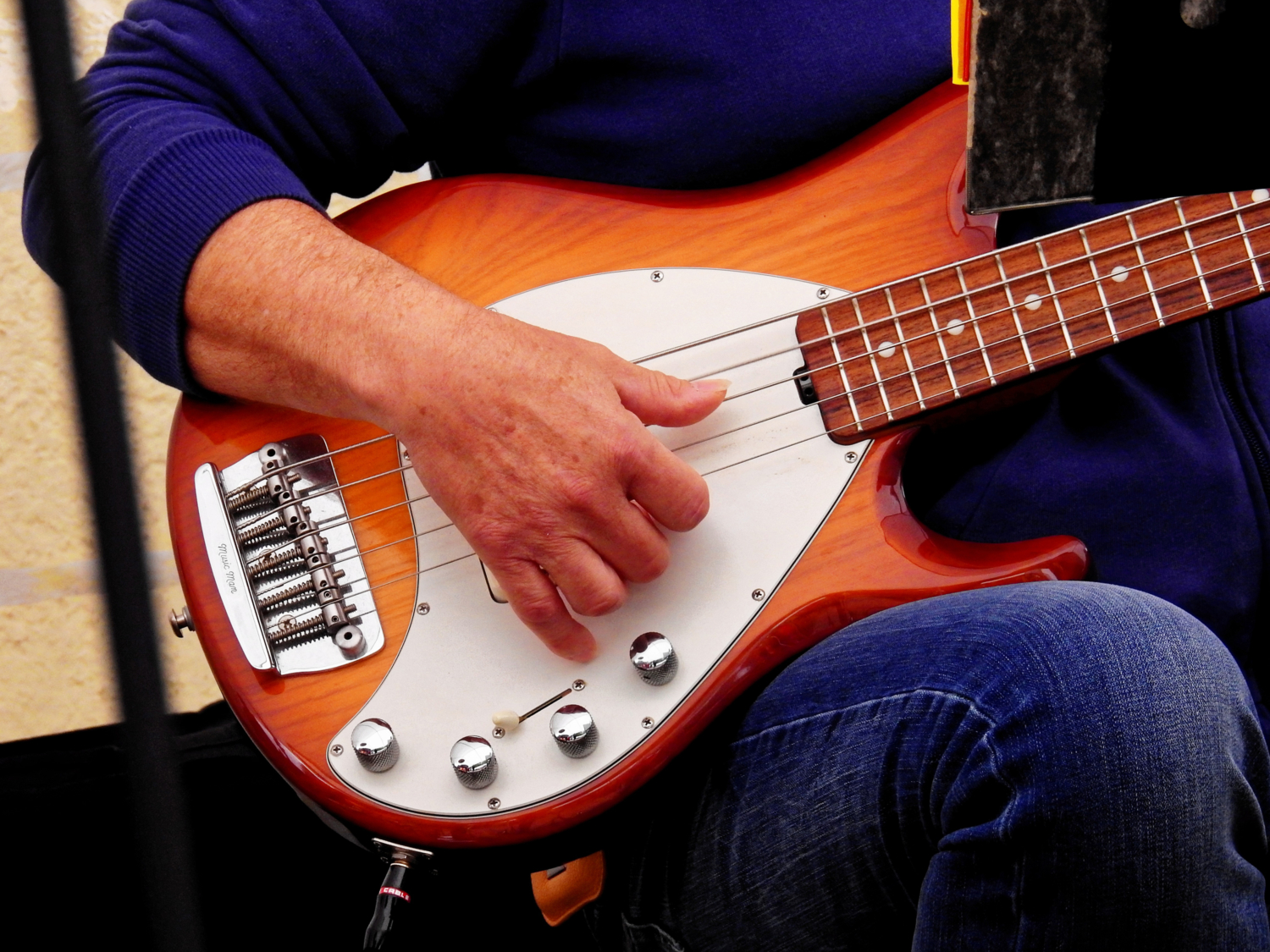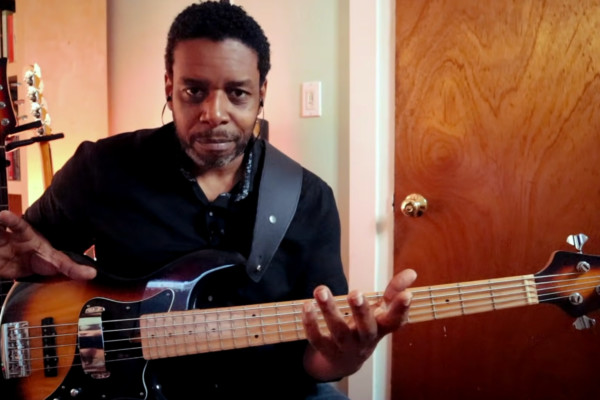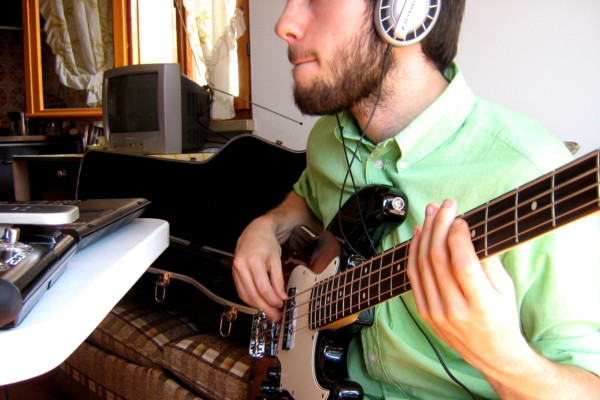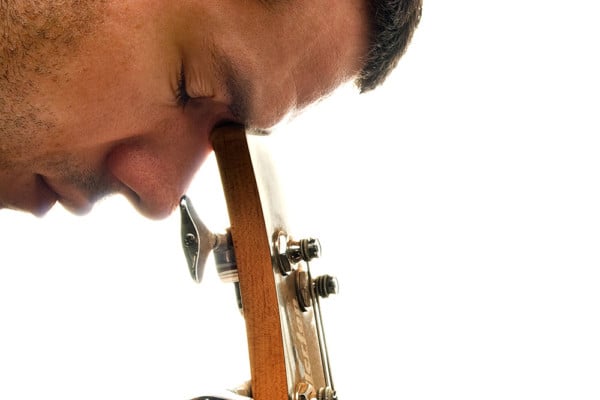Does It Take 10,000 Hours To Master An Instrument?

Q: What would you say that it takes for someone to master an instrument? I’ve heard the “10,000 hours” thing but sure not all 10,000 hours are created equal?
A: I couldn’t agree more with you that not all hours in the shed are created equally. Time spent with well-considered goals for yourself – practicing with focus and intention – is astronomically more productive than hours spent noodling aimlessly or practicing only the things that you can already play. However, I continue to maintain that it’s just as important to noodle, play freely, and with abandon. I just believe that “shed” time is for study, and the most efficient way to study is to know what you’re working on and why.
Your question reminded me of something that I have often talked about in clinics or in other educational settings. At a certain point in my development, I started thinking long and hard about what it was that got somebody from a place of proficiency to a place of mastery (this was borne out of my building frustration that, although I was gigging and practicing a lot, I still felt like a novice compared to who I wanted to be on the instrument. I had a real sense of, “Geez… how much harder do I have to work to get there?”) This led me to conclude that, perhaps, it wasn’t that I didn’t work hard or long enough but, rather, that I wasn’t working smart enough. (for the record, I still don’t consider myself as having finally arrived “there” but I have found a place of acceptance and peace with where I am, musically speaking).
In thinking about how one developed the ability to speak freely and confidently in music, I ultimately came up with three categories of study for myself (when I speak of those that can speak freely and confidently, think Chick Corea, Wayne Shorter, Dave Holland, Christian McBride, Victor Wooten, etc… Those that aren’t “trying” to do anything, but just do it).
Here are the three categories I came up with. Yours might be different, depending on your own goals for your instrument and where you are currently:
- Harmony: It seemed obvious that, in order to speak the language confidently, I needed to better understand the language.
- Rhythm: Much of what makes a phrase or line feel good has as much or more to do with the rhythm and time-feel. Being comfortable with rhythm opens up your musical palette in a different way than harmony. Combine the two and now you really have something.
- Technique: I wanted to ensure that my instrument was never an obstacle. I don’t want to have to think about how to play my instrument while I am on stage any more than I want to think about how to move my mouth when I speak.
Regarding harmony: I dove into jazz theory with the goal of learning what options I had available to me for any chord type and then started to work my preferences into muscle memory (there are always choices when it comes to chord-scales or harmonic choices over any given chord type. Pick any chord type and you have any number of ways to play over that chord, depending on how you want it to sound. Don’t get stuck in the idea that there is only one appropriate scale for any given chord.
I agonized over arpeggios, inversions, chord scale options, substitutions, focusing on one chord type at a time and then running the same exercises over standards, etc… I developed a very systematic method for myself (which I’ve conveniently outlined in my book, “The Improvisor’s Path” (* shameless plug). Fear not, I’ve also written quite a few articles here relating to the specifics of my routine.
Regarding rhythm: I hit a real rhythmic stride when I started thinking about how drummers practice rhythm and separated my rhythmic practice from my harmonic studies. And then I hit some even bigger strides once I combined my rhythmic studies with my harmonic studies!
Regarding technique: It wasn’t that I wanted to be a shredder. Most shredding I hear on the internet these days actually makes me cringe (not bad mouthing anybody or any style, it’s just not what I find to be musical. I’m as critical of myself as anybody else out there so I don’t mind saying it. I rely on speed too much, as well, IMHO). Rather, I just wanted to be able to play anything that I needed to play whether it was because it was something that I heard and wanted to add to the music or because I had to play a tricky line on a session. I never wanted to have to worry about my ability to play anything. I wanted my instrument to be an unconscious connection between my hands, brain, and the music. I don’t really want to be aware of the bass in my hands so much. I wanted playing my bass to be like driving my car.
I know it, I understand it, and I have done it so much that I don’t need to think about staying in-between the lines, or where the end of my car is when pulling up to something. I just know it and I physically operate on autopilot while only thinking about where I want to wind up. I see where I want to be and my body just makes it happen without thinking of, “slightly to the right, hit the brakes a bit, now crank it to get into that spot, hit the brakes more… oops, other pedal. am I too close? etc…” I just think, “Me. There. Done.” and the body does what it needs to on a barely conscious level.
I (and others here at No Treble) have written a multitude of articles about all of these related topics, so I won’t rehash everything in agonizing detail but, if you’d like to read more about any of these things, just give the site a search. Something thought-provoking is bound to appear. My main goal here was to give you the answer I gave myself when I asked this question to myself years ago.
I’ll sum it up like this: harmony, rhythm, and my technique are the crucial building blocks of my ability to play naturally and comfortably over anything that comes my way (in addition to stylistic awareness, of course).
Hopefully, this has you thinking in terms of setting a positive direction.
Have a question for Damian Erskine? Send it to [email protected]. Check out Damian’s instructional books, Right Hand Drive and The Improviser’s Path.



